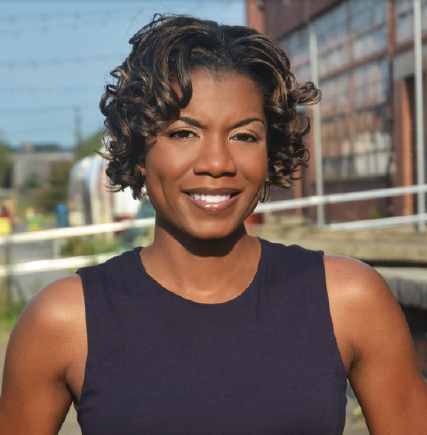Those in the United States who have doctoral degrees make up less than two percent of the total population. African Americans who have doctoral degrees make up less than half of that. However, Winthrop professor Nicki Washington defied the odds and became the first African American woman to receive a Ph.D. in computer science from North Carolina State University. Not only did Washington succeed in becoming one of the few African Americas to receive a doctoral degree but she also became one of the few African Americans to receive a degree and go into a STEM field such as computer science.
According to Washington, there is a lack of certain minorities in STEM fields such as computer science which creates various issues.
“Historically disenfranchised groups are the racial/ethnic demographics that are underrepresented in [computer science] (i.e. black, Latinx, Native American). White and Asians are not,” Washington said. “There’s a lot of bias that is embedded in the algorithms used by technology today. For example, incorrect/racist automatic tagging of black people in pictures as animals, automated technologies such as hand dryers not recognizing darker skin tones, biased results used for determining bail/bond or biased search results when typing in certain demographics. These are things that are issues because the people creating these technologies don’t have to think about being inclusive or these specific issues because they don’t look like the people being affected by them.”
Due to the racial discrepancies seen within STEM fields such as computer science and algorithm programming, Washington works hard to ensure that more African Americans, Latinx and Native American individuals are becoming interested and pursuing careers in computer science fields.
“My research is…specifically, measuring the identity of historically disenfranchised students in computing. There are a lot of efforts nationwide to increase the participation of these groups in computing and tech…My work has been to create a tool that can be used to quantitatively measure if these programs are helping students increase their identity in the field. I worked with Dr. Anna Romanov in quantitative methods to perform much of this work…In addition, I also focus on K-16 curriculum development and culturally relevant pedagogy to increase student participation, engagement, and retention in computer science courses,” Washington said.
As an African American woman in the field of computer science, Washington knows the struggle of being a minority in a predominantly white space. Washington describes her experience in a STEM field as a tough one, where she often finds herself having to explain or defend herself in certain situations where her white and/or male counterparts do not.
“My experience has not been and still is not easy. I’ve been questioned because I’m one of the few, if not the only black woman in the class or room. I’ve been called ‘angry, nasty, rude, mean, etc.’ because I’m assertive and hold people, including students, accountable. I’ve had to constantly defend myself to non-black non-women, because they’ve tried to equate their experiences to mine and don’t understand or believe that as a black woman in a field where very few obtain bachelor’s degrees (let alone Ph.D.’s), there are inherent biases in place that impact how I’m viewed,” Washington said.
Despite all of these struggles, Washington has endured throughout her professional career she has not let it stop her from succeeding. She currently works as a professor at Winthrop University in the computer science department and has also taught at Howard University in their computer science department. She has also been featured in Essence magazine under Essence Tech Stars: 15 Black Women Disrupting the Tech Industry.
“In spite of this, I’ve tried to remain true to myself. The one person I have to be ok with at all times is myself. If it compromises my beliefs and principles, then no thanks. It may cost me an opportunity. However, I maintain my sense of self. This is what I try to instill in other students, specifically historically disenfranchised students,” Washington said.
In all, Washington says that in order to end this disenfranchisement seen with minority groups in computer science field’s inclusion needs to be practiced and held to a higher standard.
“Inclusion is what you do. Do you foster an environment that allows that diverse group of individuals to feel as if they belong, regardless of their racial, gender, sexual, religious or socioeconomic background? Or do you continue to foster environments where diversity is present as a check in a box, yet individuals still feel marginalized? This is where the real work lies,” Washington said.




